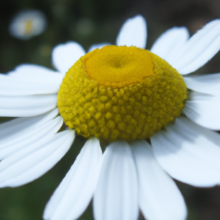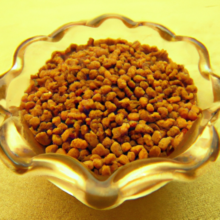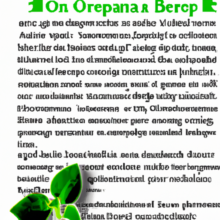Why Holy Basil Is Known As The “Queen Of Herbs”
Imagine having a herb so remarkable that it earns the prestigious title of “Queen of Herbs.” Well, Holy Basil is just that herb. With its numerous health benefits and rich history, Holy Basil has earned its crowning glory. In this article, we will explore why Holy Basil is revered as the ultimate herb, uncovering its extraordinary qualities that make it a true queen among all other herbs. Get ready to discover the fascinating world of Holy Basil and its regal reign in the realm of herbal remedies.
History and Origin of Holy Basil
Origin of Holy Basil
Holy Basil, also known as Ocimum sanctum or Tulsi, is a sacred plant that holds great significance in many cultures around the world. It is believed to have originated in the Indian subcontinent, specifically in the tropical regions of Southeast Asia. Holy Basil has been cultivated for thousands of years and has a long history of use in traditional medicine and spiritual practices.
Religious Significance
In Hinduism, Holy Basil is considered a sacred plant and is often referred to as the “Queen of Herbs.” It is believed to be an incarnation of the goddess Tulsi, who is highly revered in Hindu mythology. Hindu families often have a Tulsi plant in their homes, which is considered to bring good luck and protection. The leaves of the plant are used in various religious ceremonies, including the worship of deities and the offering of prayers.
Historical Use in Ayurvedic Medicine
Ayurveda, the traditional system of medicine in India, has recognized the medicinal properties of Holy Basil for centuries. It is considered to be an important herb for promoting overall health and well-being. Holy Basil is known for its adaptogenic qualities, which help the body cope with stress and maintain balance. It is used in Ayurvedic remedies for a wide range of health conditions, including respiratory disorders, digestive issues, and skin problems.
Physical Characteristics of Holy Basil
Plant Description
Holy Basil is a perennial plant that belongs to the mint family. It has a strong, aromatic scent and can grow up to three feet tall. The leaves of the plant are oval-shaped, with serrated edges, and vary in color from green to purple. The flowers of Holy Basil are small and white, and they bloom in clusters on the upper part of the plant. The plant thrives in warm and humid climates and requires well-drained soil for optimal growth.
Varieties of Holy Basil
There are several varieties of Holy Basil, each with its own unique characteristics. The most commonly cultivated types include Rama Tulsi, Krishna Tulsi, and Vana Tulsi. Rama Tulsi has green leaves and a mildly sweet taste. Krishna Tulsi has purple leaves and a more peppery flavor. Vana Tulsi, also known as wild Tulsi, has green leaves and a more potent aroma. Each variety has its own distinct flavor and medicinal properties.
Unique Features
One of the unique features of Holy Basil is its ability to adapt to different climates and growing conditions. It can thrive in both tropical and subtropical regions, making it a versatile herb for cultivation. Holy Basil also has high levels of essential oils, such as eugenol, which contribute to its aromatic scent and medicinal properties. These oils are responsible for the herb’s antimicrobial, antioxidant, and anti-inflammatory effects.
Culinary Uses of Holy Basil
Flavor Profile
Holy Basil has a distinct flavor profile that is often described as a combination of mint and clove. It has a slightly spicy and peppery taste, with hints of sweetness. The flavor of Holy Basil is intense and can add depth and complexity to a wide range of dishes. It is commonly used in Southeast Asian cuisine, particularly in Thai and Indian dishes, where it imparts a unique and aromatic flavor.
Popular Dishes
Holy Basil is used in a variety of dishes, both in its fresh and dried form. In Thai cuisine, it is a key ingredient in the popular dish called “Pad Krapow,” which is a stir-fry made with holy basil, meat (usually pork or chicken), chili, garlic, and soy sauce. In Indian cuisine, Holy Basil is used in curries, chutneys, and herbal teas. It is also used in salads, soups, and rice dishes to add flavor and aroma.
Traditional Culinary Practices
In addition to its use in everyday cooking, Holy Basil has been used in traditional culinary practices for its health benefits. In Ayurvedic cooking, Holy Basil is often included in recipes to enhance digestion, boost the immune system, and promote overall health. It is also believed to have a balancing effect on the doshas, the three energies that govern the body in Ayurveda.
Medicinal Properties and Health Benefits
Antioxidant and Anti-inflammatory Effects
Holy Basil contains powerful antioxidants, such as rosmarinic acid and eugenol, which help protect the body against oxidative stress and inflammation. These antioxidants neutralize harmful free radicals and reduce the risk of chronic diseases, such as heart disease and cancer. Holy Basil has been shown to have anti-inflammatory effects, which can help alleviate symptoms of inflammatory conditions like arthritis and asthma.
Stress Relief and Adaptogenic Qualities
Holy Basil is considered an adaptogen, which means it helps the body adapt to physical, mental, and emotional stress. It has been used for centuries in Ayurvedic medicine to promote relaxation, improve mood, and enhance mental clarity. Holy Basil helps regulate the production of stress hormones, such as cortisol, and supports the body’s natural response to stress. It is often used as a natural remedy for anxiety, depression, and insomnia.
Potential Antibacterial and Antiviral Activity
Studies have shown that Holy Basil possesses antibacterial and antiviral properties, which can help fight against various pathogens. It has been found to inhibit the growth of bacteria, such as E. coli and Salmonella, as well as viruses, including the herpes simplex virus and influenza virus. Holy Basil extracts have been used in traditional medicine to treat respiratory infections, skin infections, and other infectious diseases.
Spiritual and Religious Significance
Sacred Plant in Hinduism
In Hinduism, Holy Basil is considered a sacred plant and is deeply revered for its spiritual and medicinal qualities. It is believed to be a manifestation of the goddess Tulsi, who is considered the consort of Lord Vishnu, the preserver of the universe. Hindu scriptures describe Holy Basil as a divine plant that bestows blessings and purifies the mind, body, and soul. Hindus worship Holy Basil and offer prayers and rituals to seek its blessings.
Association with Goddess Tulsi
Goddess Tulsi holds a special place in Hindu mythology and is considered to be a symbol of purity, devotion, and protection. Legend has it that the goddess Tulsi appeared on Earth in the form of a Holy Basil plant to bless humanity. It is believed that the presence of Holy Basil in a household brings harmony, prosperity, and spiritual elevation. Hindus often wear garlands made of Holy Basil leaves and symbolically embrace the goddess’s divine energy.
Ritual Uses and Symbolism
Holy Basil plays a significant role in religious ceremonies and rituals in Hinduism. It is considered the most sacred plant and is used in various rituals, including weddings, housewarming ceremonies, and the worship of deities. Holy Basil leaves are offered to gods and goddesses as a mark of respect and devotion. They are also used in the preparation of holy water, which is sprinkled on devotees to purify and bless them.
Holy Basil’s Impact on Mental Health
Calming and Anxiety-Relieving Properties
Holy Basil has a calming effect on the mind and body and is often used as a natural remedy for anxiety and stress. It helps regulate cortisol, the stress hormone, and promotes a sense of relaxation and tranquility. Holy Basil is believed to have anxiolytic properties, meaning it can reduce symptoms of anxiety and promote a sense of well-being. Regular consumption of Holy Basil tea or supplements may help alleviate anxiety-related disorders.
Improvement of Cognitive Functions
Holy Basil has been found to enhance cognitive functions, such as memory, focus, and concentration. It contains compounds that improve blood flow to the brain, which enhances mental alertness and cognitive performance. Holy Basil also has neuroprotective properties, which may help prevent age-related cognitive decline and neurodegenerative diseases, such as Alzheimer’s and Parkinson’s.
Promotion of Emotional Well-being
Holy Basil is known for its mood-enhancing properties and is often used as a natural remedy for depression and emotional imbalances. It helps regulate serotonin and dopamine, neurotransmitters that play a crucial role in mood regulation and emotional well-being. Holy Basil also supports the adrenal glands, which produce hormones that influence mood and energy levels. Regular consumption of Holy Basil may help improve emotional stability and promote a positive outlook on life.
Holy Basil as a Natural Skincare Ingredient
Antimicrobial and Anti-acne Effects
Holy Basil possesses antimicrobial properties that help combat acne-causing bacteria and prevent the formation of blemishes. It reduces inflammation and redness associated with acne, making it an effective natural remedy for treating and preventing breakouts. Holy Basil also has astringent properties, which help tighten pores and reduce excess oil production, leading to clearer and healthier skin.
Antioxidant Benefits for Skin Health
The antioxidants found in Holy Basil, such as rosmarinic acid and eugenol, help protect the skin against damage caused by free radicals and environmental stressors. These antioxidants neutralize harmful molecules that can lead to premature aging, fine lines, and wrinkles. Holy Basil can help maintain youthful and radiant skin by promoting collagen production and improving skin elasticity.
Skin Soothing and Radiance Enhancing
Holy Basil has soothing and cooling properties that make it beneficial for sensitive and irritated skin. It can help calm redness, reduce inflammation, and provide relief from skin conditions like eczema and psoriasis. Holy Basil also promotes blood circulation, which enhances the skin’s natural glow and gives it a healthy and vibrant appearance.
Cultivation and Growing Holy Basil
Planting and Propagation
Holy Basil can be easily grown from seeds or cuttings. To grow Holy Basil from seeds, plant them in well-drained soil and keep the soil moist until germination occurs. Once the seedlings are established, they can be transplanted into larger pots or directly into the garden. Holy Basil can also be propagated from stem cuttings. Simply take a healthy stem, remove the lower leaves, and place it in a glass of water to allow roots to develop. Once the roots are established, transfer the cutting into a pot or garden bed.
Suitable Growing Conditions
Holy Basil thrives in warm and humid climates and requires full sun to partial shade for optimal growth. It prefers well-drained soil with a pH level between 6 and 7. The plant should be watered regularly, but overwatering should be avoided to prevent root rot. Holy Basil is a fast-growing plant and can be harvested multiple times throughout the growing season.
Harvesting and Preservation
Holy Basil leaves can be harvested as soon as the plant reaches a height of 6 to 8 inches. The leaves should be picked in the morning when the essential oils are most concentrated. To preserve the freshness and aroma of Holy Basil, the leaves can be stored in airtight containers or dried for later use. Dried Holy Basil leaves can be crushed and stored in a cool, dark place for up to six months.
Precautions and Side Effects of Holy Basil
Possible Drug Interactions
Holy Basil may interact with certain medications, including blood thinners, antiplatelet drugs, and antidiabetic medications. It is advisable to consult with a healthcare professional before consuming Holy Basil if you are taking any prescription medications.
Allergic Reactions
Some individuals may experience allergic reactions to Holy Basil, particularly if they have a sensitivity to plants in the mint family. Allergic symptoms may include skin rashes, itching, and respiratory distress. If you experience any allergic reactions, discontinue use and seek medical attention.
Recommended Dosage and Safety Considerations
While Holy Basil is generally considered safe for consumption, it is recommended to follow the dosage instructions provided by the manufacturer or consult with a healthcare professional for personalized guidance. Pregnant women, breastfeeding mothers, and children should exercise caution and consult with a healthcare professional before using Holy Basil.
Scientific Research and Studies on Holy Basil
Studies on Medicinal Properties
Scientific studies have confirmed many of the traditional uses of Holy Basil in Ayurvedic medicine. Research has shown that Holy Basil possesses antioxidant, anti-inflammatory, and antimicrobial properties. Studies have also demonstrated its potential benefits for stress relief, cognitive function improvement, and skin health.
Clinical Trials and Potential Applications
Clinical trials have explored the therapeutic potential of Holy Basil in various health conditions. Research has shown that Holy Basil may have a positive impact on conditions like diabetes, high blood pressure, and respiratory disorders. It has also been studied for its potential anticancer properties and protective effects against radiation-induced damage.
Emerging Research Discoveries
Ongoing research on Holy Basil continues to uncover new potential health benefits. Recent studies have suggested that Holy Basil may have a role in supporting cardiovascular health, improving liver function, and enhancing immune function. While further research is needed to validate these findings, these discoveries highlight the promising nature of Holy Basil as a natural remedy.
In conclusion, Holy Basil, known as the “Queen of Herbs,” has a rich history and holds great significance in various aspects of life. From its roots in traditional medicine and religious practices to its culinary and skincare uses, Holy Basil continues to captivate and benefit people worldwide. Whether consumed as a flavorful herb, brewed in teas, or used in skincare products, Holy Basil offers a host of potential health benefits and serves as a reminder of the profound connection between nature and human well-being.




